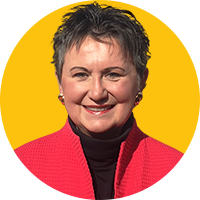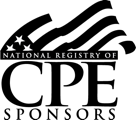Managing Your Career Using the 70-20-10 Rule
After completing this course, the learner should be able to:
- Identify the stages of career development
- Identify elements of the 70-20-10 rule
- Identify steps of a career development plan

Instructor bio
Krys Moskal Amdurer, ED.D. Krys Moskal Amdurer worked as a senior executive for learning and career development in Pearson, Warner Lambert (now Pfizer) and Johnson &Johnson. She consulted with senior executives on their strategic objectives and customized programs for their employees. Krys installed talent development teams internationally and provided learning and coaching resources. Together, Krys with her team implemented learning management systems, created just-in-time programs, and developed a robust vendor database. For 15 years, Krys had my her consulting company, KMA & Associates, through which she provided a wide range of programs and services to Fortune 500 companies. Clients included Johnson & Johnson, Simon & Schuster, Bristol-Myers-Squibb, Readers’ Digest, Dun & Bradstreet, Reuters, American Express, Sealand (Maersk), and Warner Lambert (Pfizer). Krys helped them set up major programs and services to roll out core values, competencies, performance management, leadership, customer service, talent management, change management, innovation, and teamwork. Education • Doctorate and Master Degrees from Rutgers University.
What is the 70-20-10 rule?
The 70-20-10 rule focuses on a balanced approach to learning and professional development between experiential learning, social learning, and formal learning.
- 70 percent of learning should be experiential, meaning hands-on experience, on-the-job training, and practical application.
- 20 percent of learning should be social. This includes interacting with colleagues, mentors, and peers in meetings, discussions, and collaborative projects.
- 10 percent should be formal learning. These include structured classes, courses, or workshops (like CPE). They're essential to build foundational knowledge but represent a smaller portion of learning over your career.
Who can use the 70-20-10 rule?
There are no prerequisites or requirements to take this course, and it is ideal for anyone looking to improve their career development. In addition to this being a CPE course for CPAs, this course can be beneficial to EAs, accountants, and other professionals.
A Becker Professional Education is registered with the National Association of State Boards of Accountancy (NASBA) as a sponsor of continuing professional education on the National Registry of CPE Sponsors. State boards of accountancy have final authority on the acceptance of individual courses for CPE credit. Complaints regarding registered sponsors may be submitted to the National Registry of CPE Sponsors through its website: www.nasbaregistry.org
Becker Professional Education Sponsor I.D. Numbers NASBA: 107294, New York: 002087, New Jersey: 20CE00226700, Texas: 009580, Ohio: CPE.186, Illinois 158.002405, Pennsylvania: PX177823

